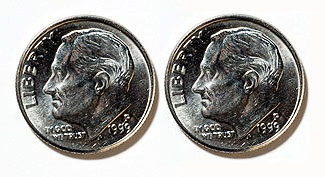
Posted on 09/12/2006 5:38:51 PM PDT by Conservababe
I heard this word used verbally in a sentence...it is not part of the "paradine". I have spelled it as I heard it, but have no idea of the spelling or meaning. I have tried to look it up using online dictionaries using different spellings with no luck.
Can someone help?
Sure you don't mean "paradigm?"
Paradigm?
paradigm
paradigm?
paradigm
Paradigm?
paradigm is the word you're looking for.
Are you sure the word is not "paradigm"?
paradigm? I think it means twenty cents.
Thailand? ;-)
Ditto!to all of those above me.
Pair a Dig 'm

It was the "cool" word back about 7-10 years ago.
thailand?
3 results for: paradigm View results from: Dictionary | Thesaurus | Encyclopedia | the Web
Dictionary.com Unabridged (v 1.0.1) - Cite This Source new! par‧a‧digm /ˈpærəˌdaɪm, -dɪm/ Pronunciation Key - Show Spelled Pronunciation[par-uh-dahym, -dim] Pronunciation Key - Show IPA Pronunciation –noun 1. Grammar. a. a set of forms all of which contain a particular element, esp. the set of all inflected forms based on a single stem or theme. b. a display in fixed arrangement of such a set, as boy, boy's, boys, boys'.
2. an example serving as a model; pattern.
-------------------------------------------------------------------------------- [Origin: 1475–85; < LL paradīgma < Gk parádeigma pattern (verbid of paradeiknýnai to show side by side), equiv. to para- para-1 + deik-, base of deiknýnai to show (see deictic) + -ma n. suffix]
—Synonyms 2. mold, standard; ideal, paragon, touchstone. Dictionary.com Unabridged (v 1.0.1)
Based on the Random House Unabridged Dictionary, © Random House, Inc. 2006. American Heritage Dictionary - Cite This Source new! par·a·digm (pr-dm, -dm) Pronunciation Key n. One that serves as a pattern or model. A set or list of all the inflectional forms of a word or of one of its grammatical categories: the paradigm of an irregular verb. A set of assumptions, concepts, values, and practices that constitutes a way of viewing reality for the community that shares them, especially in an intellectual discipline.
[Middle English, example, from Late Latin paradgma, from Greek paradeigma, from paradeiknunai, to compare : para-, alongside; see para-1 + deiknunai, to show; see deik- in Indo-European Roots.] Usage Note: Paradigm first appeared in English in the 15th century, meaning “an example or pattern,” and it still bears this meaning today: Their company is a paradigm of the small high-tech firms that have recently sprung up in this area. For nearly 400 years paradigm has also been applied to the patterns of inflections that are used to sort the verbs, nouns, and other parts of speech of a language into groups that are more easily studied. Since the 1960s, paradigm has been used in science to refer to a theoretical framework, as when Nobel Laureate David Baltimore cited the work of two colleagues that “really established a new paradigm for our understanding of the causation of cancer.” Thereafter, researchers in many different fields, including sociology and literary criticism, often saw themselves as working in or trying to break out of paradigms. Applications of the term in other contexts show that it can sometimes be used more loosely to mean “the prevailing view of things.” The Usage Panel splits down the middle on these nonscientific uses of paradigm. Fifty-two percent disapprove of the sentence The paradigm governing international competition and competitiveness has shifted dramatically in the last three decades.
(Download Now or Buy the Book) The American Heritage® Dictionary of the English Language, Fourth Edition Copyright © 2000 by Houghton Mifflin Company. Published by Houghton Mifflin Company. All rights reserved. WordNet - Cite This Source new! paradigm n 1: systematic arrangement of all the inflected forms of a word 2: a standard or typical example; "he is the prototype of good breeding"; "he provided America with an image of the good father" [syn: prototype, epitome, image] 3: the class of all items that can be substituted into the same position (or slot) in a grammatical sentence (are in paradigmatic relation with one another) [syn: substitution class] 4: the generally accepted perspective of a particular discipline at a given time; "he framed the problem within the psychoanalytic paradigm" WordNet ® 2.0, © 2003 Princeton University
Nuts! That's what I was about to do!


paradigm
A table or set that shows the ways to conjugate a verb, decline or inflect a noun, etc., in all possible ways, by using a model (the word paradigm means model or example). For example, a verb conjugation table is used in Spanish with three traditional model verbs (amar, temer, vivir) in all tenses, persons, numbers and moods; it's a verb paradigm (comprising three sub-paradigms). English doesn't need paradigms, except very small ones, since it's much more analytic. ...
Disclaimer: Opinions posted on Free Republic are those of the individual posters and do not necessarily represent the opinion of Free Republic or its management. All materials posted herein are protected by copyright law and the exemption for fair use of copyrighted works.